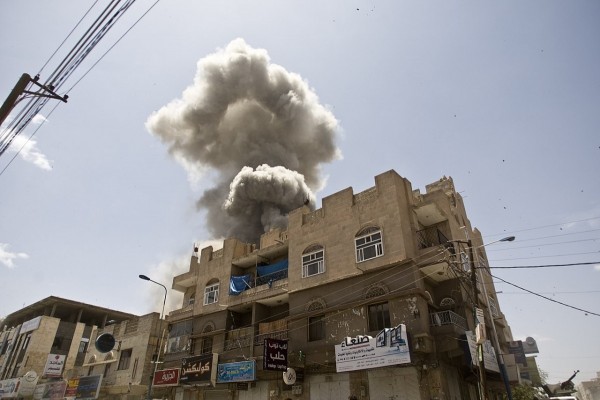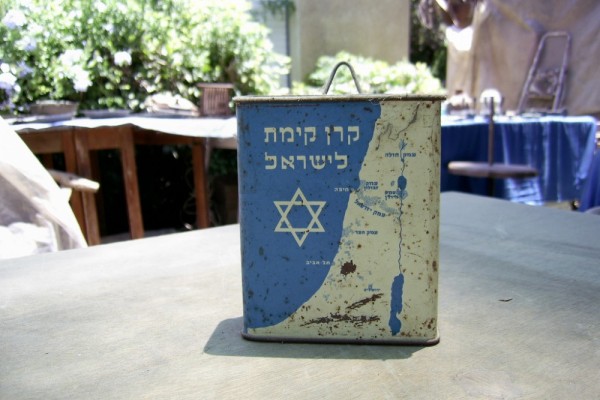Document reveals true motives behind Canada’s support for Saudi Arabia
Canada’s relationship with the kingdom is based solely on cold economic calculations

Saudi Crown Prince Mohammad bin Salman. Photo courtesy US State Department/Wikimedia Commons.
On March 11, online media outlet The Breach published a document that shines a light on Ottawa’s usually secretive policies toward Saudi Arabia and the wider West Asian region. The document illustrates that Canada’s cozy relationship with the Wahhabi kingdom is based solely on cold economic calculations—specifically, Western access to cheap oil, Canadian access to Saudi markets, and Saudi Arabia’s role as a “bulwark” against other regional power formations, specifically Iran and its allies.
The Liberals love preening about ‘feminist foreign policy’ while selling arms to the Saudi dictators, but we now have a document showing Canada's real motives: oil, corporate contracts, and a proxy state that can save us sending troops to the Middle East. https://t.co/6iRv69o3f4
— Martin Lukacs (@Martin_Lukacs) March 13, 2023
While the Trudeau government expressed supposed concerns about the Saudi state after Jamal Khashoggi’s murder and dismemberment, neither the assassination nor the brutal Saudi-led war on Yemen played any role in shifting Canadian policy in the region. After a brief pause in weapons sales following Khashoggi’s murder, Canadian arms transfers to the Gulf kingdom continued, rising to new records in recent years.
The document obtained by The Breach reveals that, behind closed doors, Canadian government officials don’t even bother to acknowledge the human rights issues they moralize about in public. In fact, the analysis defends Saudi actions in Yemen and Canada’s policy of multi-billion dollar arms transfers to the kingdom by claiming that “instability in Yemen poses a direct threat” to the Saudi state. The document makes no mention of the hundreds of thousands of Yemenis who have died as a result of the Saudi-led war of aggression.
In plainspoken language, the document states that Canada must continue to support Saudi Arabia because the kingdom functions as a “principal guarantor of global energy security and ensures access to the affordable energy essential for economic growth in the West.” The document also notes that Canada and its allies have “invested a lot financially and militarily in the relationship over the decades,” an investment that aims to keep Riyadh “oriented to a Western rules-based worldview.”
Arms sales to Saudi Arabia are one part of a wider strategy that aims to secure Canada’s regional interests without sacrificing Canadian troops and resources. The document notes that the billions in weaponry that Canada sells to Saudi Arabia each year “reduce future requirements for large scale Western military missions… ensure stability in the Gulf, and [aim to] prevent a breakdown in regional order that could harm the global economy by endangering the supply of affordable oil.”
Canada’s efforts to orient Riyadh toward the Western capitalist world, and secure lucrative investments for Canadian companies within Saudi Arabia, date back to at least the 1970s. A document prepared in 1977 by the Minister of Supply and Services states that the Canadian embassy in Jeddah exists to support the commercial ventures of Canada-based companies wishing to invest in Saudi Arabia. The document reads:
In the first instance, the commercial officers of the Canadian Embassy in Jeddah are available to serve as agents for Canadian enterprises wishing to penetrate the Saudi market. They will make a preliminary investigation into the acceptability of a firm’s products (services) and help to establish initial contacts. They will also provide information and advice on local agents and brief the exporter on local customs and travel.
Trade between Canada and Saudi Arabia grew in subsequent years. In 1977, the Department of External Affairs valued two-way trade at $821 million. By 1981, it had grown to $2.73 billion.
Meanwhile, numerous government departments partnered with Riyadh to assist in the development of Saudi markets, including the Department of Communications, the Department of Energy, Mines, and Resources, the National Research Council, the Department of Transport, the Canadian Commercial Corporation, and the Ontario Educational Services Corporation. The two countries also formed a Joint Economic Committee to oversee the integration of the Canadian and Saudi economies.
In November 1984, External Affairs published “Canada’s Export Development Plan for Saudi Arabia.” The document notes: “To capitalize on the range of export opportunities in Saudi Arabia, greater focus on the most promising sectors of the market is required.” The department planned to serve as “an impetus to this process” by seeking to “provide an effective program of assistance to exporters and to foster an environment conducive to Canadian export development in Saudi Arabia.”
In the 1980s, the Canadian government organized federal and provincial trade missions to the Gulf kingdom. The 1984 document explains that the Canadian business sector played a significant role in the development of this pro-Saudi policy: “Ongoing consultations by trade officials with businessmen have ensured that private sector views have also been incorporated [into Canadian policy]. Given this concentration of effort and dedication of purpose, there is every reason to expect that Canada’s share of the Saudi market can be significantly expanded.”
During that decade, major Canadian investors in Saudi Arabia included Bell Canada Limited, Mitel, and Northern Telecom, while many other Canadian companies were active in the following industries: agriculture, aviation, electrical equipment, electronics, mineral development, petroleum, and telecommunications.
The export development plan notes that such investments had already made Saudi Arabia into Canada’s largest trading partner in West Asia. The External Affairs authors assert that “[it] should remain so for a considerable period of time given the unexploited potential of the marketplace” and the Saudi regime’s friendly relationship with the West.
By 2021, two-way trade between Canada and Saudi Arabia had reached $4.6 billion. Current Canadian companies with large infrastructure investment in Saudi Arabia include SNC-Lavalin and Bombardier.
Canada’s support for the Saudi-led war of aggression on Yemen is very much about the regional spread of a Western-oriented capitalism, and the securing of a favourable position for Canadian companies. It is not primarily about the Saudi regime’s security concerns, but the expansion of markets into Yemen, a terrain that has historically proven resilient in terms of outside subjugation.
As Isa Blumi outlines in Destroying Yemen: What Chaos in Arabia Tells Us about the World, the war represents “a continued foreign effort to subordinate Yemenis, long defiantly independent from the globalization trends infesting the larger world.”
Summarizing Blumi’s argument, Inderjeet Parmar writes:
Yemen is both agent and victim of modernization, globalization, and neoliberalism, not to mention unbridled military aggression by Saudi Arabia and the United Arab Emirates, and their Anglo-American suppliers and sponsors. Their purpose and goal is, primarily through market and military forces… to transform Yemen into another cog in capitalist, global, financial and military-strategic systems. Yemen is only legible if it services the needs of regional and global powers. Yemen does not make sense unless it is integrated.
Canadian foreign policy in West Asia has historically sought to empower regional actors who support this Western-oriented capitalist integration while targeting those who offer alternative modes of social, economic, and political organization. This is the context in which we need to view Canada’s seemingly blind support for the Saudi regime and virulent opposition to its enemies.
It is not bureaucratic inertia that prevents Ottawa from revising its relationship with the Saudis into one that respects human rights and the aspirations of oppressed peoples within and outside the country. As the document obtained by The Breach demonstrates, Canada’s support for Saudi Arabia is rooted in the logic of the Canadian state itself, which views the expansion of markets as its raison d’être in foreign policy regardless of the devastation it causes.
Owen Schalk is a writer from Manitoba. His book on Canada’s role in the war in Afghanistan will be released by Lorimer later this year. To see more of his work, visit www.owenschalk.com.










